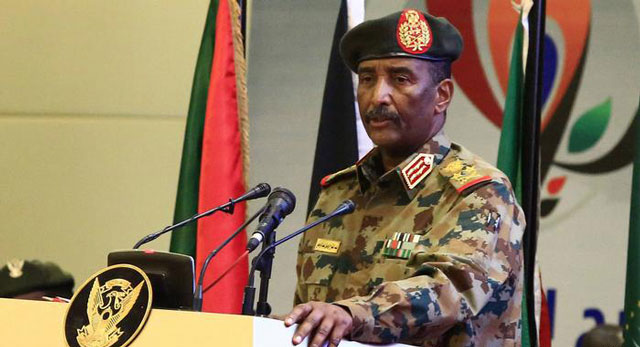
Khartoum, Sudan | XINHUA | The conflict in Sudan entered a third week on Saturday despite a 72-hour ceasefire extension reached a day earlier.
The capital of Khartoum and its adjacent cities, Bahri and Omdurman, were hit by air strikes, anti-aircraft weaponry, and artillery.
The weeks-long conflict between Sudan’s military factions has caused a humanitarian crisis in the country, sent a geopolitical shockwave that reverberates through the region, and prompted many countries to rush to evacuate their citizens.
Fighting continues
Fierce clashes and explosions rocked Khartoum’s upscale Kafouri neighborhood on Friday and Saturday, according to media reports.
The government’s Sudanese Armed Forces’ (SAF) warplanes were said to have bombed their rivals, the paramilitary unit Rapid Support Forces (RSF). Clashes were also reported around the Republican Palace, the SAF’s headquarters, and the area close to the Khartoum international airport on Friday. These areas have been flashpoints since the war erupted on April 15, with explosions also heard across the river in Omdurman.
On Friday, Türkiye reported that one of its evacuation planes was hit by gunfire outside Khartoum with no casualties, only hours after the two sides agreed to the latest ceasefire, which was brokered by foreign powers and is supposed to last until midnight on Sunday.
The RSF accused the government forces of violating the ceasefire with air strikes on its bases in Omdurman and Mount Awliya, while the army blamed the RSF for violations.
The two rival generals leading the SAF and RSF have targeted each other in the media. Abdel Fattah al-Burhan, chairman of Sudan’s Transitional Sovereignty Council (TSC) and leader of the government forces, branded the RSF a militia that aims “to destroy Sudan” in an interview with U.S.-based TV channel Alhurra. He also claimed that “mercenaries” were crossing the border from Chad, Central African Republic, and Niger to exploit the chaos.
Mohamed Hamdan Dagalo, deputy chairman of the TSC and leader of the RSF, denounced his rival in an interview with the BBC, calling him “not trustworthy” and a “traitor.”
The friction between the SAF and RSF had been building for months. Both sides were required to cede power to civilian parties under a transition plan meant to be finalized earlier this month, but the process foundered over timing issues, including when the RSF would be absorbed into army ranks.
Humanitarian crisis
As violence continues to grip Sudan, residents in Khartoum are enduring dire conditions, with dwindling access to basic necessities and restricted movement due to the volatile security situation.
Food, water, and other essential services are scarce. Electricity is cut off across much of Khartoum and other cities. The cities are also plagued by fighters who loot and destroy homes, shops, businesses, and open-air markets.
According to the United Nations, the death toll has reached at least 512, with close to 4,200 wounded, though it believes the real figures are much higher. More than 75,000 people were internally displaced within Sudan in the first week of the fighting, while only 16 percent of hospitals were operating normally in the capital.
The ongoing violence has driven tens of thousands of refugees across Sudan’s borders, posing a risk to the volatile region between the Sahel and the Red Sea.
UN Secretary-General Antonio Guterres warned on Tuesday the violence could spread to other countries in the region, saying that it is “lighting a fuse that could detonate across borders, causing immense suffering for years, and setting development back for decades.”
Despite intensifying pressure from international mediators, the rival generals have only managed to achieve temporary ceasefires that have failed to stop the clashes.
Moreover, the UN has expressed concern over the “alarming” situation in Darfur, where at least 96 individuals have been reportedly killed in Geneina, a city located in West Darfur State, since Monday.
Doctors Without Borders (MSF) has reported extensive looting, destruction, and burning of property, including at camps designated for displaced people. As a result of the ongoing conflict, Sylvain Perron, MSF’s deputy operations manager for Sudan, said that they have been compelled to suspend nearly all operations in West Darfur.
Countries rush
The conflict has triggered a rush of countries to evacuate diplomats and citizens. Several countries have evacuated nationals by air, while some have gone via Port Sudan on the Red Sea, more than 800 km away from Khartoum.
On Thursday, China’s Foreign Ministry spokesperson Mao Ning said that over 1,300 Chinese citizens have been safely evacuated from Sudan. China has actively helped bring foreign nationals out of Sudan, and has so far helped nationals of five countries to evacuate from Sudan on Chinese ships.
Despite these efforts, there are still a small number of Chinese citizens outside the Sudanese capital, Khartoum, she said, adding China will continue to do its utmost to assist them and other countries who have requested assistance in evacuation.
Other countries have also been conducting evacuation operations. Egypt has evacuated a total of 6,399 Egyptians, 1,072 of whom were evacuated on Friday. The Egyptian Foreign Ministry said on Thursday some 16,000 people had crossed the border from Sudan into Egypt, including 14,000 Sudanese citizens.
France said on Thursday that it had evacuated 936 people, including U.S. and British nationals.
Saudi Arabia, Britain, the United States, and Japan also have conducted evacuation missions to get their nationals out of Sudan.
Iran’s Foreign Ministry said on Saturday that 65 Iranian citizens had left from Port Sudan, through Jeddah, to Iran, praising the “influential cooperation” from Saudi Arabia in the country’s evacuation mission. ■
 The Independent Uganda: You get the Truth we Pay the Price
The Independent Uganda: You get the Truth we Pay the Price



